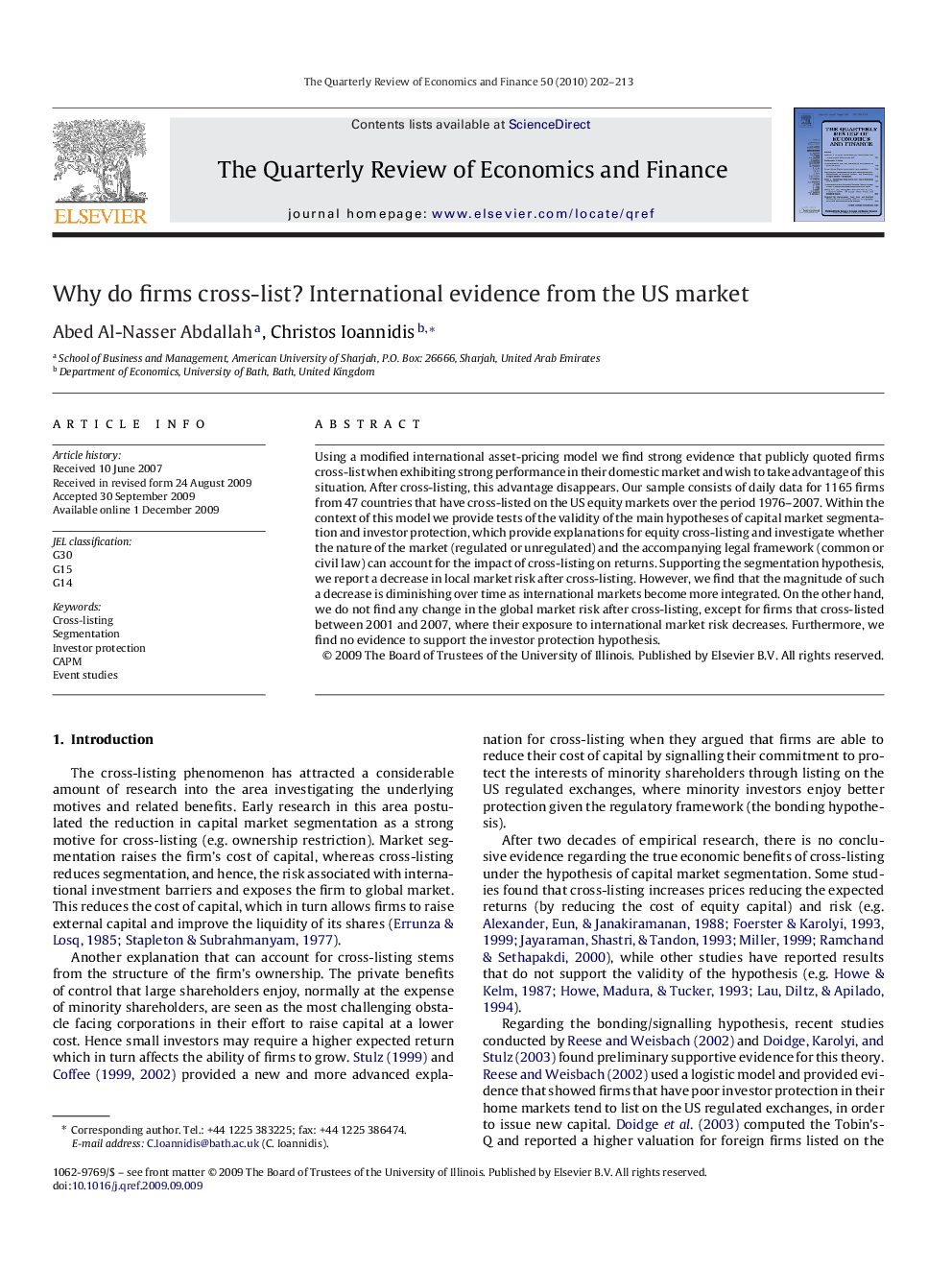| Article ID | Journal | Published Year | Pages | File Type |
|---|---|---|---|---|
| 982255 | The Quarterly Review of Economics and Finance | 2010 | 12 Pages |
Using a modified international asset-pricing model we find strong evidence that publicly quoted firms cross-list when exhibiting strong performance in their domestic market and wish to take advantage of this situation. After cross-listing, this advantage disappears. Our sample consists of daily data for 1165 firms from 47 countries that have cross-listed on the US equity markets over the period 1976–2007. Within the context of this model we provide tests of the validity of the main hypotheses of capital market segmentation and investor protection, which provide explanations for equity cross-listing and investigate whether the nature of the market (regulated or unregulated) and the accompanying legal framework (common or civil law) can account for the impact of cross-listing on returns. Supporting the segmentation hypothesis, we report a decrease in local market risk after cross-listing. However, we find that the magnitude of such a decrease is diminishing over time as international markets become more integrated. On the other hand, we do not find any change in the global market risk after cross-listing, except for firms that cross-listed between 2001 and 2007, where their exposure to international market risk decreases. Furthermore, we find no evidence to support the investor protection hypothesis.
